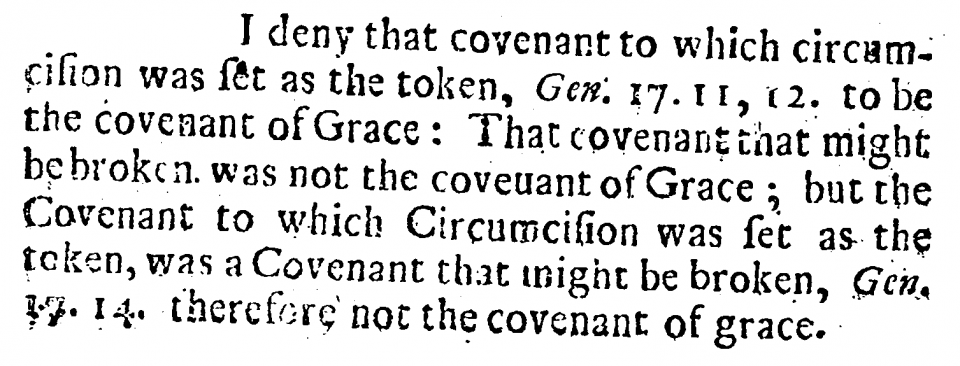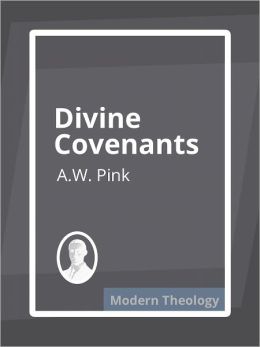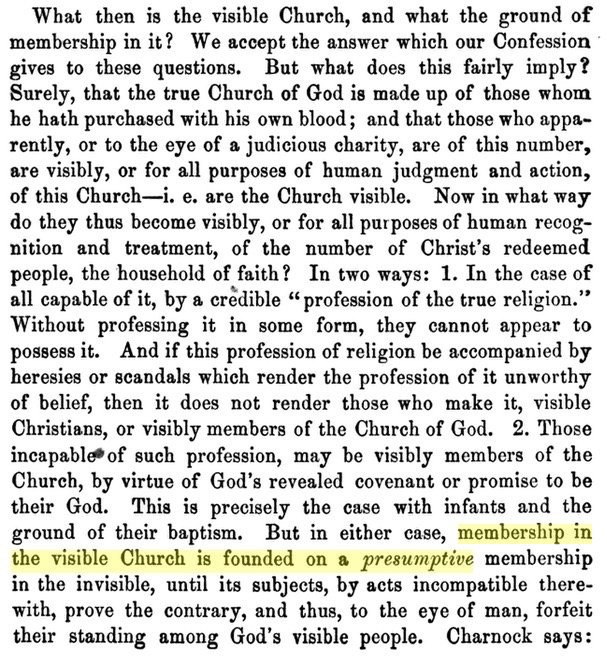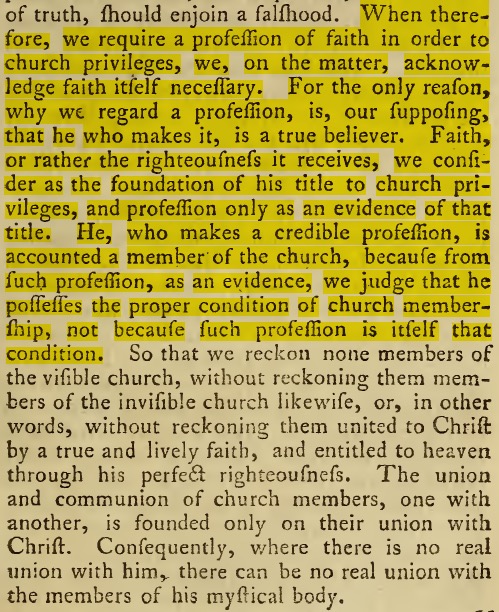Resources
Covenant of Circumcision is Not the Covenant of Grace
On 22, Nov 2014 | In Resources | By Brandon Adams
-Anonymous Particular Baptist
Biblical-Theological Exposition and Hermeneutics
On 19, Nov 2014 | In Resources, Richard Barcellos | By Brandon Adams
by Richard Barcellos [PDF available here]
The Bible is a big book. It contains 66 books written by many different human authors over a wide range of time and in diverse geographic, cultural, political, and religious circumstances. There are two main sections to our English Bibles – the Old and the New Testament. There are several different genres of literature in the Bible – e.g., narrative/history, law, poetry, prophecy, gospels (i.e., theological biographies), epistles, and apocalyptic. These factors make interpreting the Bible a difficult task at times. Those who do not view the Bible as the inspired, infallible, and inerrant written Word of God often use these factors to pit one section of Scripture against others. They do not see it as containing a system of doctrine. System, in their thinking, is impossible due to the various human authors and other factors mentioned above. Denying divine inspiration, there is no reason to expect a cohesive story-line and doctrinal continuity.
Those of us who view the Bible as the written Word of God, however, are committed to allow it to speak authoritatively on anything and everything it comments upon. And one the things the Bible comments upon is itself. In other words, texts often pick up on previous texts and further explain their meaning. This happens with words, phrases, verses, passages, persons, events, institutions, places, and concepts. When this occurs, it is the divine use or interpretation of a previous divine revelation. In other words, the Bible sometimes interprets the Bible for us and when it does, the way subsequent revelation interprets and applies antecedent revelation gives us (at least in part) the divinely intended meaning of the antecedent text. This is not to say that the interpreter of a text cannot find out its meaning unless the Bible interprets it for us, but it is to say that when the Bible interprets itself, the interpretation is infallible and reflective of the divine intention for and use of that text. Because the Bible is divinely inspired, a whole- Bible hermeneutic is crucial in understanding both the parts and the whole of Scripture. Read more…
Barcellos’ Short Writings on Covenant Theology
On 19, Nov 2014 | In Resources, Richard Barcellos | By Brandon Adams
Below are several short writings from Richard Barcellos related to covenant theology. You can also download them here combined in one PDF.
- How Old is Covenant Theology?
- A Typical Objection to the Covenant of Works: Stated, Answered, Concluded
- Was Adam placed in a covenantal relationship with God?
Barcellos’ Short Writings on the Law
On 19, Nov 2014 | In Resources, Richard Barcellos | By Brandon Adams
Below are links to various short writings from Richard Barcellos related to the law. They are also available combined as one PDF.
- Definition of Key Terms and Phrases
- Some thoughts on the three-fold division of the law
- Some thoughts on Moral Law, Positive Law, the Ten Commandments, the New Covenant, and the Ground of our Justification
- Typical Objections to the Ten Commandments and Christians
- The Second London Baptist Confession of 1689 on the Decalogue
- On the use of the word “law” (nomos) with and without the Greek article
Redeemer Radio: The Law of God
Richard Barcellos was interviewed on Redeemer Radio on Chapter 19 of the London Baptist Confession of Faith.
The Decalogue in the Thought of Key Reformed Theologians with Special Reference to John Owen
On 17, Nov 2014 | In Resources, Richard Barcellos | By Brandon Adams
The following is Appendix Two in Richard Barcellos’ The Family Tree of Reformed Biblical Theology. Here is a PDF version.
Introduction
In this Appendix, we will explore the thought of John Owen, as well as several other Reformed theologians from the 16th-18th centuries, on the functions of the Decalogue. We will note the various nuances of terminology and theological formulation among Reformed theologians of the past. But we will also see basic methodological and theological continuity from John Calvin to Thomas Boston. This, once again, displays Owen’s continuity with the Reformed tradition and the continuity among the Reformed orthodox on this subject. As will be seen, the Reformed orthodox approached this subject utilizing a redemptive-historical hermeneutic, something we noted in Chapter Six.
Our focus will be upon John Owen. He is not always easy to understand and has been misused on the issue of the functions of the Decalogue. We will seek to allow him to speak for himself, offer some observations, and compare Owen’s statements with those of others before and after him. This will display, among other things, the fact that Owen fits within the broader theological tradition of Reformed thought on the functions of the Decalogue in redemptive history. Read more…
From the Garden to the Covenant of Works (Barcellos)
|
Pascal Denault on the Covenant Theology of the 1689 Baptist Confession (RB Seminary)
On 15, Nov 2014 | In Audio, Pascal Denault, Resources, Video | By Brandon Adams
From Reformed Baptist Seminary: Pascal Denault is an ordained minister of a Reformed Baptist church in Quebec and is the author of The Distinctiveness of Baptist Covenant Theology. In four video lectures below, Pascal discusses the covenant theology of the Second London Baptist Confession of 1689. First, he examines the “covenant of works” as it is formulated in the Westminster Confession, Savoy Declaration, and Second London Baptist Confession in lecture one. Next, in lecture two, he summarizes the “covenant of grace” as it has been traditionally formulated among Reformed and Paedobaptist theologians. In the third lecture, Pascal highlights the unique contribution offered by the Particular Baptists in the 2LBCF to a theology of the covenant of grace. Then he summarizes his study on the covenant theology of the 2LBCF and highlights the practical ramifications in lecture four. Finally, a Q&A session featuring Bob Gonzales and Pascal Denault deals with questions related to confessions of faith and covenant theology. Enjoy!
Pascal Denault is an ordained minister of a Reformed Baptist church in Quebec and is the author of The Distinctiveness of Baptist Covenant Theology. In four video lectures below, Pascal discusses the covenant theology of the Second London Baptist Confession of 1689. First, he examines the “covenant of works” as it is formulated in the Westminster Confession, Savoy Declaration, and Second London Baptist Confession in lecture one. Next, in lecture two, he summarizes the “covenant of grace” as it has been traditionally formulated among Reformed and Paedobaptist theologians. In the third lecture, Pascal highlights the unique contribution offered by the Particular Baptists in the 2LBCF to a theology of the covenant of grace. Then he summarizes his study on the covenant theology of the 2LBCF and highlights the practical ramifications in lecture four. Finally, a Q&A session featuring Bob Gonzales and Pascal Denault deals with questions related to confessions of faith and covenant theology. Enjoy!
The Covenant Theology of the 2LBCF, Part 1
The Covenant Theology of the 2LBCF, Part 1 – Pascal Denault from Reformed Baptist Seminaryon Vimeo.
The Covenant Theology of the 2LBCF, Part 2
The Covenant Theology of the 2LBCF, Part 2 – Pascal Denault from Reformed Baptist Seminaryon Vimeo.
The Covenant Theology of the 2LBCF, Part 3
Try here http://rbseminary.org/home/pascal-denault-on-the-covenant-theology-of-the-1689-baptist.html
The Covenant Theology of the 2LBCF, Part 4
Try here http://rbseminary.org/home/pascal-denault-on-the-covenant-theology-of-the-1689-baptist.html
Q&A – Gonzales and Denault on Confessions and Covenant Theology
Question & Answer Session: Confessions of Faith and Covenant Theology from Reformed Baptist Seminary on Vimeo.

From Pascal Denault’s website:
1689 Federalism is the Particular Baptist understanding of the Covenant of Grace as stated in the Second London Confession of Faith of 1689. This particular view is distinct from the Westminster view that holds to the concept of one Covenant of Grace under two distinct administrations which are the Old and the New Covenants. From this view, the Westminster Confession allows the Old Covenant to define the Covenant of Grace (its nature, its stipulations, its blessings) and end up with a Covenant of Grace that is mixed by nature because it includes the physical posterity of all those who profess faith. This understanding was perceived by the Particular Baptists to alter the nature of the New Covenant which is « not like » the Old Covenant (Jer. 31:32) and is pure by nature (Jer. 31:34).
The 1689 Confession rejects the One Covenant/Two administrations view of the Westminster. Instead, it affirms that the Covenant of Grace was only revealed in the Old Testament time until it became a formal covenant when the New Covenant was established. Therefore, the Particular Baptist understanding considers that only the New Covenant is the Covenant of Grace and defines it. This involves that the Old Covenant was not the Covenant of Grace and was only typologically linked to it but was in itself an earthly covenant that came to an end when the heavenly reality was established. Instead of seeing two realities (earthly/heavenly, internal/external) inside of the same covenant of grace, the 1689 Federalism affirms two distinct covenants: an earthly external covenant (the Old) and an heavenly internal covenant (the New). The New Covenant was first a promise that was put under the guard of the Law (the Old Covenant). It was then accomplished, sealed in the blood of Christ and given to believers in the form of a covenant.
In the lectures below, I expose chapter 7 of the 1689 (Of God’s Covenant). These lectures were given at the Reformed Baptist Seminary module on Creeds and Confessions held in Las Vegas October 2014. I offer here the MP3 files, the videos are available at RBS website: http://rbseminary.org/home/pascal-denault-on-the-covenant-theology-of-the-1689-baptist.html
You can find a French version of this teaching here: http://www.unherautdansle.net/alliances/
1. The Covenant of Works (7.1) – Audio MP3
2. The Covenant of Grace – Paedo view (7.2) – Audio MP3
3. The Covenant of Grace – Credo view (7.3) – Audio MP3
4. Summary and conclusions – Audio MP3
5. Q&A (Dr. Bob Gonzales and Pascal Denault) – Audio MP3
The Case for Credobaptism
On 04, Nov 2014 | In Resources, Samuel Renihan | By Brandon Adams
Place for Truth: A Voice of the Alliance of Confessing Evangelicals posted two articles recently. One arguing for paedobaptism, the other for credobaptism.
Samuel Renihan wrote an excellent summary of 1689 Federalism’s case for credobaptism. I highly recommend reading it, printing it, and saving it.
Consequently, there has never been a covenant wherein “believers and their children” constituted the paradigm for covenant membership.
Did A.W. Pink agree w/ 1689 Federalism?
On 03, Oct 2014 | In Resources | By Brandon Adams
Did A.W. Pink agree with 1689 Federalism?
Considering the contents of this covenant, we are fully in accord with John Owen that there is in it “a recapitulation and confirmation of all the promises of grace that have been given unto the Church from the beginning, even all that was spoken by the mouth of the holy prophets that had been since the world began (Luke 1:70).” The original promise (Gen 3:15) contained in germ form the whole essence and substance of the new covenant: all promises given unto the church afterward being but expositions and confirmations of it.
Arthur W. Pink (2010-03-19). The Divine Covenants (Kindle Locations 4625-4629). . Kindle Edition.






